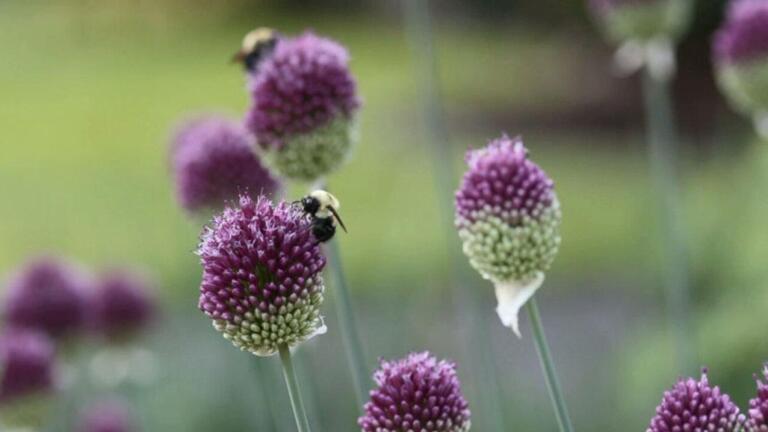Back to Show
Earth Focus
Saving America's Pollinators
Pollinators are a vital part of agricultural production. One-third of food produced in America depends on pollination by honeybees. However, since 2006, beekeepers have been losing 30 percent or more of their hives, a phenomenon that came to be called "colony collapse disorder." A growing body of evidence links neonicotinoids to this decline.
In 2013, Congressman Earl Blumenauer (D-OR) helped introduce the Save America's Pollinators Act, which directs the Environmental Protection Agency to suspend the use of neonicotinoids until a new scientific review is made to determine its safety.
Blumenauer discusses why it's important saving America's pollinators in this segment.
Support Provided By

26:16
Rising heat is causing communities to plant trees in their neighborhoods to cool off.

23:36
Endangered species and critical naval activities harmonize on San Clemente Island.

24:09
“Fast fashion” waste is examined, recycled and reimagined.

26:36
Upgrading outdated energy infrastructure in California to prevent power outages and wildfires.

26:40
Diablo Canyon ignites conversations about nuclear power in the state’s energy future.

26:40
Love for Joshua Tree endangers the local life—both people and ecosystems.

26:40
Ravens threaten Mojave Desert tortoises, and solutions call on shifts in human behavior.

26:40
A transformed L.A. River is envisioned by the communities that live at its edge.

26:40
The L.A. River is reimagined through explorations of history, hydrology, and architecture.

26:47
Everyday people are standing up against the e-commerce giants polluting the Inland Empire.

56:40
Climate change takes a toll on mental health in rural areas.

56:41
Stories of patients and doctors reveal the environmental determinants of health in South Gate, CA.
















